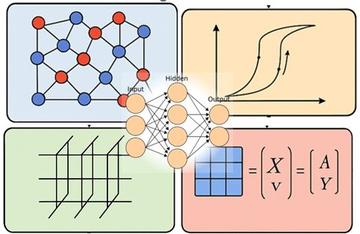Interface and Electronic Materials Laboratory

Artificial intelligence increasingly relies on specialised hardware to accelerate computation, from GPUs to emerging in-memory and neuromorphic devices. However, the performance, efficiency, and reliability of such hardware are deeply rooted in the intrinsic material properties that govern charge transport, switching dynamics, and long-term stability. Bridging the gap between material-level physics and large-scale hardware simulation is therefore essential to design the next generation of AI accelerators. This project will focus on establishing predictive connections between material characteristics and hardware-level performance in AI applications. The student will investigate how phenomena such as ionic mobility, defect dynamics, thermal stability, and variability in advanced materials (e.g. oxides, 2D materials, perovskites) influence device-level behaviour (switching thresholds, endurance, retention, analog programmability). These insights will be incorporated into multiscale simulation frameworks, spanning from finite element and transport models to compact models integrated into circuit/system-level simulators.
The project involves (1) material–device modelling that links experimental material parameters (defect distributions, conduction mechanisms, interface effects) to electrical response of memristive devices; (2) device–circuit simulations, embedding realistic device models into crossbar, in-memory, and neuromorphic architectures to evaluate system-level energy efficiency, speed, and reliability; (3) validation and benchmarking to calibrate models using real device data, ensuring predictive accuracy across scales; and (4) exploration of AI workloads for simulating hardware performance under practical AI tasks such as matrix–vector multiplications, inference benchmarks, and spiking neural networks.
The ultimate goal is to provide modelling frameworks that can guide material selection and device design for hardware tailored to AI. This project requires strong interdisciplinary collaboration across materials science, electrical engineering, and computational modelling, and will equip the student with expertise in both fundamental physics and system-level hardware evaluation. The outcome will advance the development of reliable, energy-efficient, and scalable hardware platforms for AI.